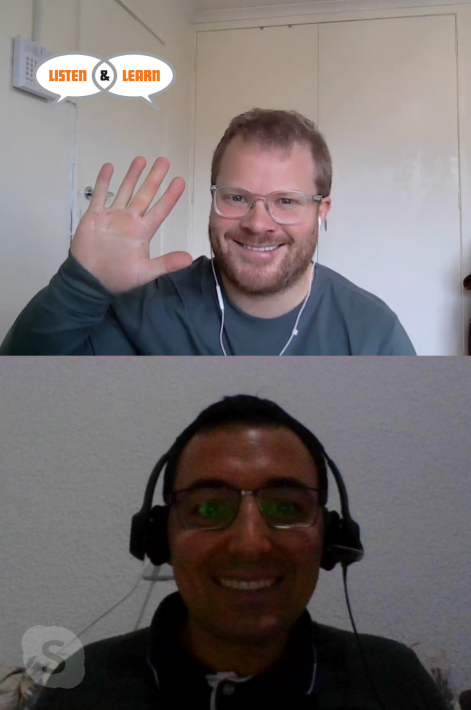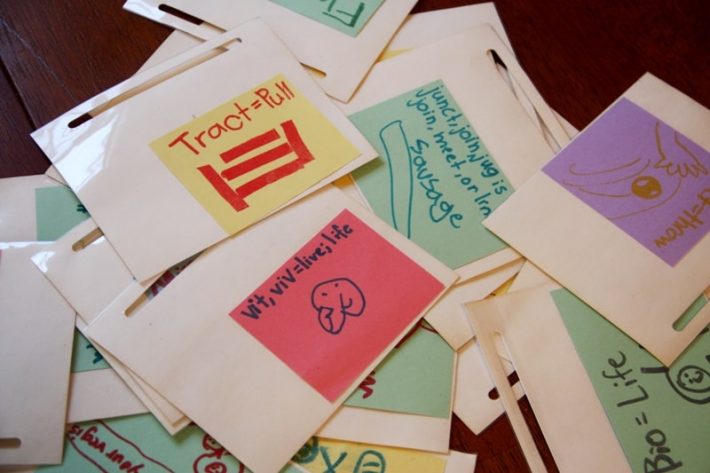How to Learn a Language Fast by the End of the Year
One of the most common New Year’s resolutions is learning a new language. It’s January 1st, and this seems totally doable: you still have the whole year ahead. Yet, the days start to pass and you soon forget about your objective. Suddenly, you are already in the last quarter of the year and start to panic. You realise there is very little time left.

Table of Contents
Well, you are in luck. Though you can’t become fully fluent in any language in just three months, you can learn the basics, utter your first phrases in your target language, and maybe even understand some basic texts! These are the things you have to do if you are wondering how to learn a language fast and be able to achieve your resolution before the year ends.
1. How to Learn the Words You Will Need Fast
When you think of learning a new language, you probably get ready to memorise an endless list of words. But the truth is that you don’t have to do this. If you work smart, you will be able to know the words you need to communicate in a very short time.
You don’t need to know all the words in a language to be able to speak it or understand it. For example, 65% of the texts written in English are made up of the same 300 words.
The best way to prepare for this is to research which are the most used words in your target language and prepare flashcards. Then, you can go over them until you remember them all.
If you want to do this online, you can use Anki. This site already has decks for most languages with the most frequent words. Then, they will test you on your knowledge of the vocabulary you selected. The words you get right will be spaced out, and the ones you usually confuse will come up frequently. In this way, you will make the most out of your time to achieve your goal of learning your target language before the end of the year.
2. How to Learn a Language Fast: Focus on similar words
Since we are in the topic of vocabulary, this is a very useful tip. Most languages have cognates, that is to say, words that are very similar across languages and have the same meaning. One example is the word “confusion”, which is confusión in Spanish and confusão in Portuguese.
The same applies to most of the words ending in “-tion”, since the majority of them entered the language through French. So, “nation” is also written as nation in French, nación in Spanish, naçao in Portuguese, and nazione in Italian. This means that English shares them with many other Romance languages.
Focusing on the words that are similar to the ones you know gives you a huge head start in the language you are learning. In this way, you will boost your vocabulary in almost no time and will be able to learn a new language fast.
3. Immerse yourself in the language, even if you don’t travel
Many people think that they need to live in a place where their target language is spoken to be able to learn it. But the truth is that it doesn’t matter where you live as long as you are immersed in the language.
Many expats spend years abroad without ever making the effort of surrounding themselves with the local language. And many others learn a new language fast at a proficient level without ever setting foot on another country.
What’s the best way to learn a language fast without travelling? Start listening to podcasts or radio programmes on your way to work, watch movies in their original language and spend your free time browsing YouTube videos in your target language. You can also read the local newspapers and find TV channels that stream their content online. The possibilities to be immersed in your target language are almost endless nowadays.
4. How to Learn a Language Fast: Practise with a native speaker.
After being immersed in the language for a few weeks, you may feel the need to start producing some sentences to consolidate what you have learnt. You have two options for this:
1. You may look for a native speaker who is learning the language(s) you speak. In this way, both of you will get practice in the language you want to learn. The negative part about this is that you won’t get to speak much and that the other person is not a trained professional, so he may not be of much help when you need an explanation of why the language works the way it does.
2. Or you can take online classes with a native speaker. The good thing about this is that your tutor will have years of experience teaching people in the same situation as you, which will accelerate the process. The classes are tailored specifically to your needs, so you’ll be able to learn a language faster than by other means.

Our Italian tutor, Piero, teaching online.
5. How to Learn a Language Fast: Set specific goals
If you want to learn a language fast, you need to hold yourself accountable. For this, setting objectives of what you want to learn and making the effort to achieve them is essential. Your goals should be S.M.A.R.T. which stands for Specific, Measurable, Attainable, Relevant, and Time-bound.
A good example of this type of goal would be “I will know the names of 10 vegetables in my target language by the end of the day”.
I would recommend setting yourself small objectives like this one so you notice your progress. But it is important that you also have a long-term goal in mind. In this way, all your short-term objectives should aim at helping you achieve your long-term goal.
So, if you want to be able to communicate with a customs agent at the airport within one month, all the vocabulary you set yourself to learn, and all the materials you use should help you do that.
And if you feel that the end of the year is near and you are still too far away from reaching your objectives, contact us! Our courses are tailored to suit your specific needs and objectives, and our teachers are all trained native speakers with years of experience. You can take online or face-to-face courses at whichever time suits you best and reach your goal of learning a foreign language by the end of the year!




